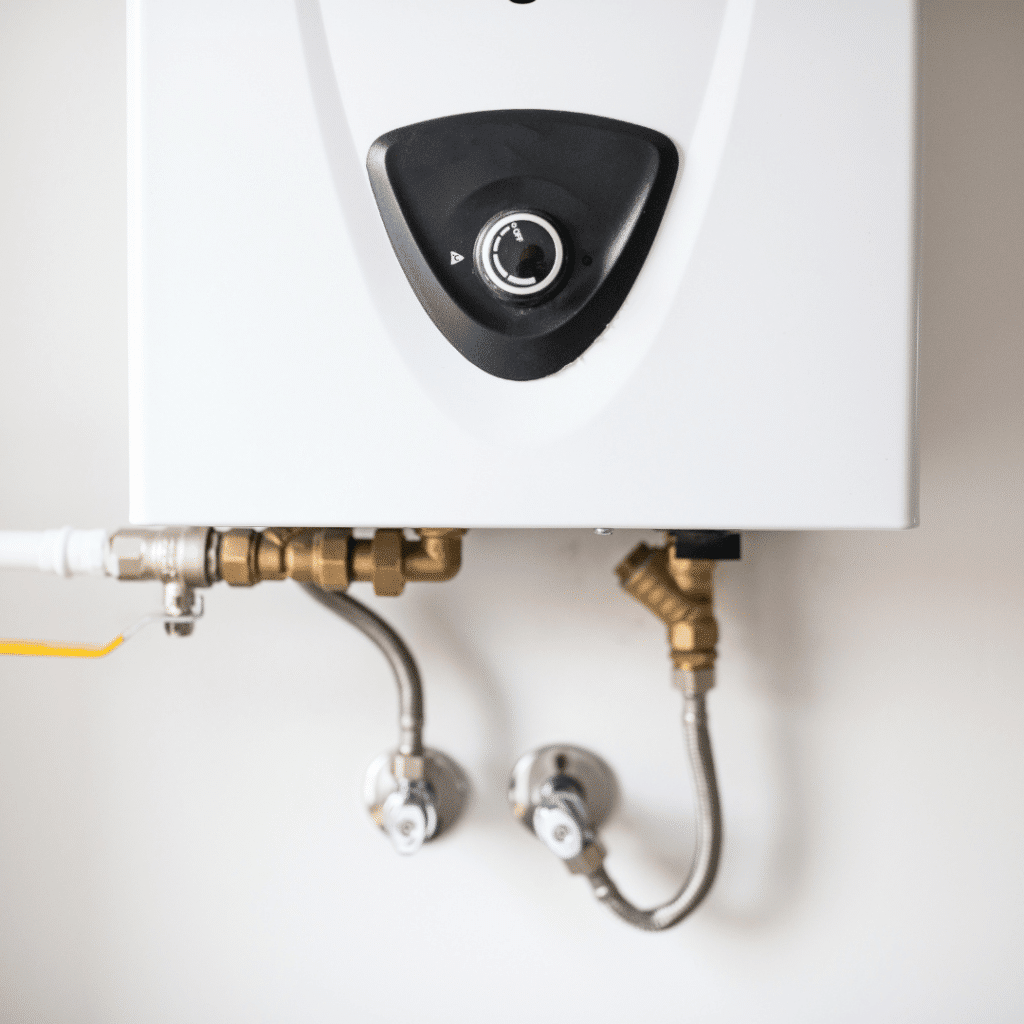If your home has a water heater, chances are you will experience a failure at some point. While water heater fails can be a major inconvenience, there are some things you can do to minimize the disruption. In this blog post, we’ll share what to do when your water heater fails. We’ll also provide some tips for preventing future water heater fails. Whether you’re dealing with a leaky tank or no hot water, we hope this information will help get your home back up and running smoothly. Read on!
What Is a Water Heater?
A water heater is a household appliance that heats water for use in showers, sinks, dishwashers, and washing machines. Many homes have a traditional storage water heater, which stores heated water in a tank until it is needed. Another type of water heater is the tankless or on-demand water heater, which heats water only as it is being used. Both types are powered by electricity, natural gas, or propane. Water heaters are generally efficient and low maintenance, but they do require regular maintenance to ensure safe operation and optimal performance. It is important to keep the surrounding area clear and free of debris, as well as to regularly flush the tank to remove sediment buildup. Regular professional inspections can also help catch potential issues before they become serious problems. Overall, having a functioning water heater greatly increases the comfort and convenience of daily life at home.

Do You Need a Water Heater?
A water heater can be a luxurious addition to any home, providing hot water for showers, dishwashing, and laundry. But is it really necessary? While most people would prefer to have a water heater, in some instances, it may not be necessary. If you live in a warm climate where hot water isn’t as necessary for comfort, or if you have access to other hot water sources (such as a stove), you may be able to get by without one. However, for most people, having a dependable source of hot water can greatly improve daily life and make chores much more efficient. When deciding whether or not to invest in a water heater, consider your individual needs and the benefits it would provide. In the end, it may just prove to be worth the cost.
How to Prevent a Water Heater Fail
Water heater fails cannot always be avoided but there are several preventative measures you can take.
- Check the Anode Rod
The anode rod is a metal rod that is inserted into the water heater tank to prevent corrosion. Over time, the anode rod will corrode in order to protect the tank from rusting. It is important to check the anode rod regularly and replace it if necessary.
- Flush the tank
It is also important to flush the water heater tank on a regular basis in order to remove sediment that has built up over time. Sediment can cause the water heater to become less efficient and can eventually lead to a complete failure.
- Set the Thermostat
The thermostat on a water heater controls the temperature of the water inside the tank. It is important to set the thermostat to the correct setting in order to prevent the water from becoming too hot and causing damage to the tank.
- Insulate the Tank
Water heaters are typically located in areas of the home that are not well insulated, such as basements or garages. This can cause the water inside the tank to lose heat, which can lead to a higher energy bill. Wrapping the water heater in an insulation blanket can help to keep the water hotter for longer periods of time.
- Drain the Tank
Draining the water heater tank on a regular basis can help to prolong its life by removing sediment and minerals that can build up over time and cause damage.
Your Water Heater Failed – What Now?
Uh oh – your shower just got freezing cold. You know that your hot water heater fails and it has done it again… what do you do?
- Check the Pilot Light
If your water heater has a pilot light, the first thing you should do is check to see if it is lit. If the pilot light is not lit, you will need to relight it. Instructions for relighting your pilot light can usually be found in your water heater’s owner’s manual.
- Check the Power Supply
If your water heater is electric, you will need to check the power supply to make sure that it is still working. You can do this by checking the circuit breaker or fuse box to see if the breaker or fuse for your water heater has been tripped or blown.
- Check the Thermostat
If your water heater has a thermostat, you will need to check it to make sure that it is set to the correct temperature. The thermostat not being set to the correct temperature, it may be causing your water heater to fail.
- Check the Heating Elements
If your water heater has heating elements, you will need to check them to see if they are burned out. Heating elements can usually be checked with a multimeter. Instructions for checking the heating elements can usually be found in your water heater’s owner’s manual.
- Call a Plumber
If you have tried all of the above and your water heater is still not working, you will need to call a plumber for assistance.
Need Help?
As you can see, there are many potential causes of a water heater failure. Some of these failures can be prevented with regular maintenance and inspections, while others may occur suddenly and without warning. If you believe your water heater has failed or is in need of inspection or maintenance, please contact Workhouse Plumbing. Our team of experts are ready and waiting to help get your home back up and running smoothly.







